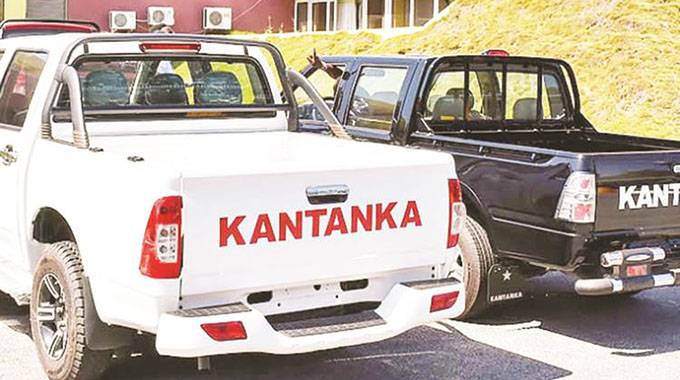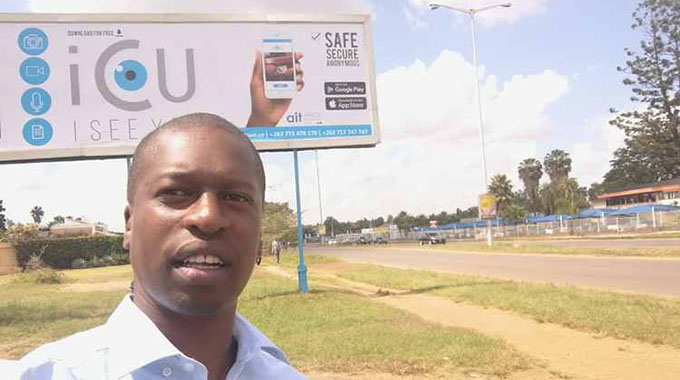Africans are not tech ‘have-nots’

Baffour Ankomah
Veteran South African freedom fighter turned business mogul Tokyo Sexwale wrote in the August edition of New African that we are incapable of making even scooters in Africa; he is wrong. We are actually making cars from scratch. Why are we so keen to do ourselves down? Baffour Ankomah (above), writing for New African magazine, begs to differ with the notion that Africans are lagging behind technologically.
Let me remind readers of some of the points that Tokyo Sexwale (a member of South Africa’s Black Consciousness Movement in the 1960s before he joined the ANC in the 1970s and served 13 years on Robben Island for his political activities, and then after 1994, became the first Premier of Gauteng province and later Minister of Human Settlements) wrote in his contribution to the Nelson Mandela Centenary report published by New African in our last issue.
As human beings, we tend to forget or ignore gems when they are mixed with so many stones on the plate.
Sexwale, who has become one of the richest Africans to emerge from South Africa’s Black Economic Empowerment programme, wrote the following:
“The lack of our own technological development should be Africa’s greatest fear right now because this new threat is affecting Africa and all that Madiba stood for at a very frightening speed. We have become the technological have-nots. Let’s look at it this way as an example – which African country has ever produced its own aircraft since the Wright brothers first invented the first successful aircraft in 1903?
“Which African car is out there in the world, being driven on global roads? Why is Africa mainly known for just assembling cars made in other parts of the world? We do that here in South Africa, but there is not a single ‘Made in South Africa’ car. Not even a scooter is made in Africa, before I even talk about the large machinery that drives power stations, or that you find at African airports or harbours.
“… So what can we do about it? It boils down to the policies that have been implemented by our African governments, side by side with the policies of the new AU. The answers lie there. And as we take stock, we need to pay attention and be serious about joint efforts targeting Africa’s development, to achieve the Africa that would make Nelson Mandela proud. Nobody else is going to do it for us.”
But first, a correction. Tokyo was wrong to say: “Not even a scooter is made in Africa”. That is not correct. He doesn’t know because he has not bothered to know, but more than a scooter has been made, and are still being made, in Africa. As Africans, sometimes we are too hard on ourselves and see no good coming out of Africa. All that we see are negatives, negatives, negatives!
Made in Africa from scratch
Sexwale should come with me to Ghana, my motherland, he will see fully “made-in-Ghana” cars (plural, not car) going up and down the roads of Ghana – cars he will be immensely proud of, all made from scratch in Kwame Nkrumah’s country.
The cars are currently being manufactured near Winneba in Ghana’s Central Region by Kantanka Automobile Company, a subsidiary of the Kantanka Group of Companies founded by a very talented Ghanaian Christian leader, Apostle Kodwo Safo Kantanka (founder and leader of the Kristo Asafo church/mission) whose talent in technology and machinery could only have come from God. I say so because Apostle Safo has minimal formal (or European) education, so the technological feats he has achieved could not have come from European or man-given education.
Nine years ago, I went to Apostle Safo’s manufacturing plant near Winneba to see his inventions for myself and take photographs (one of which is published here with this column). New African reported about his Kantanka cars, TV sets, sound systems, air-conditioners, brick-making machines, etc, long before any other publication or TV station was attracted to the Kantanka cars.
Apostle Safo and his dedicated team of employees manufacture (not assemble) all the cars and other products from scratch. For decades, no government or African partner would help him when he needed partnership most to mass produce his inventions, until a Chinese company came by in recent years.
The Chinese partnership has enabled Apostle Safo to mass produce the Kantanka range of cars (formerly all hand-made) that comprises over 10 different models of saloon, 4x4s, SUVs and stretch limousines.
Apostle Safo even manufactured a prototype helicopter many years ago, but no Ghanaian government would give him a licence to fly it and test it. Can you imagine why, as Sexwale says, no “African country has ever produced its own aircraft since the Wright brothers first invented the first successful aircraft in 1903?” I can bet my last cedi on this: If the Wright brothers were African, their rudimentary aircraft (as compared to today’s airplanes) would not have flown, no government would have given them a licence to fly it.
Maybe Sexwale would want to bring his immense wealth and contacts to partner with Apostle Safo to bring to fruition his (Sexwale’s) wish that, “we need to pay attention and be serious about joint efforts targeting Africa’s development”, so that in the next few years Kantanka cars will be the first fully made-in-Africa cars to be driven on global roads.
Horrendous visa regimes
This brings me to a different but related topic. It is the issue of borders that were imposed on us at the Berlin Conference in 1884 when European powers carved up the continent among themselves to avoid going to war over what they claimed were their “possessions”. Belgium’s King Leopold had helped himself, in his personal capacity, to the whole of what is now the Democratic Republic of the Congo and had made an unimaginable fortune. Everybody else wanted a slice of the pie too.
There was absolutely no care or consideration or thought for the people in the territories that were being dished out and as a result people of the same ethnic and cultural backgrounds were either split or mixed up with others into “nation” states. A good deal of our conflicts stem from this process.
But leaving the political ramifications aside, independent African states seemed to take great pleasure in hardening their borders, especially against other Africans with strict visa regimes to restrict the movement of goods and people. This constricted the size of our markets, virtually dealing the killer blow to large-scale manufacture. No wonder there was little incentive to produce the sort of cars and other goods that Apostle Safo and his ilk show they would have been capable of doing.







Comments